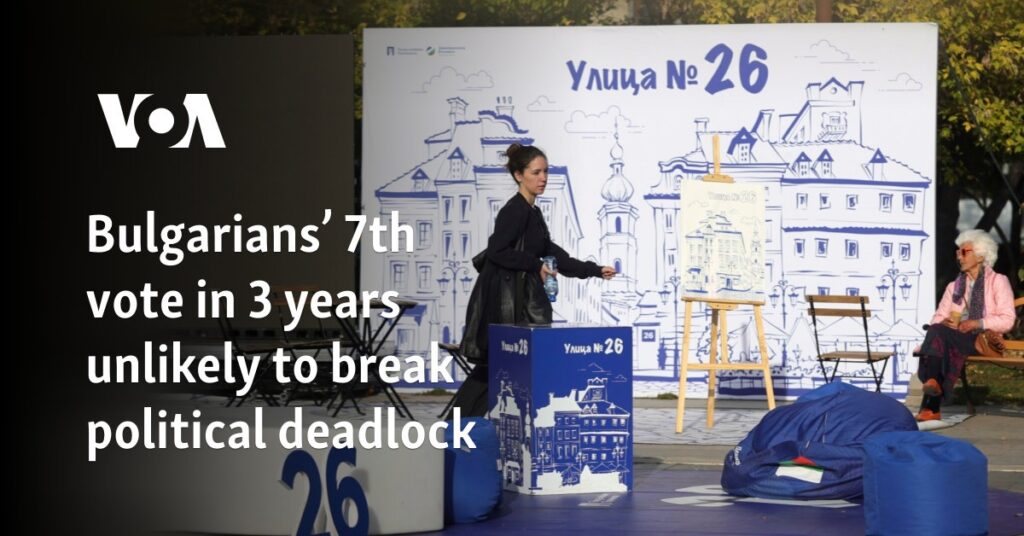Sofia, Bulgaria —
Bulgarians voted Sunday in their seventh general election in more than three years, with little hope that a stable government would be formed to prevent the country from sliding into political instability.
Voter fatigue and disillusionment with politicians creates an environment in which extremist political voices, aided by widespread disinformation from the Russian government, undermine public support for the democratic process and increase the popularity of pro-Russian and far-right groups. It is being produced.
The never-ending electoral spiral is having serious implications for Bulgaria’s economy and foreign policy. The country risks losing billions of euros from the EU recovery fund due to lack of reform. Full integration into the open-border Schengen Area and membership in the Eurozone is likely to be further delayed.
Polling stations opened at 7 a.m. local time on Sunday. The first exit poll results will be announced after voting closes at 8 p.m., with provisional results expected on Monday.
According to the latest opinion polls, Bulgarians’ distrust of elections will lead to record low turnout. According to Gallup World Poll data, only 10% of Bulgarians trust the integrity of elections, the lowest percentage in the EU with an average of 62%.
Some have called the past few years an era of “revolving door government,” which has further fueled voter apathy.
There was no clear winner in the latest vote in June, with the seven groups elected to the divided parliament unable to form a viable coalition. Observers suggest Sunday’s vote will yield more of the same result.
Political risk consultancy Teneo said in a report last week that these early elections are not expected to break the lingering political deadlock.
Former Prime Minister Boyko Borisov’s centre-right GERB is expected to win a plurality of seats, but Teneo predicted it would be difficult to form a majority government in a divided parliament.
“The result will most likely be a technocratic government or another early election,” the consultancy said. “Political instability and soaring budget deficits are key challenges for Bulgaria’s accession to the euro zone. “It’s happening,” he said.
The Balkan country of 6.7 million people has been gripped by political instability since 2020, when nationwide protests erupted against corrupt politicians who allowed oligarchs to control state institutions.
Bulgaria is one of the poorest and most corrupt countries in the European Union. Attempts to combat corruption are an uphill battle against an unreformed judicial system that is widely accused of serving the interests of politicians.
Despite GERB’s declining support in recent elections, it is likely to finish first with a quarter of the votes. But securing enough support for a stable coalition government will be a challenge for Borisov.
Analysts believe that Vazradane, Bulgaria’s main pro-Russian party, could emerge as the second-largest force in parliament. Far-right, ultra-nationalist and populist parties are demanding that Bulgaria lift sanctions against Russia, end aid to Ukraine and hold a referendum on NATO membership.
The reformist, pro-EU We Continue the Change/Democratic Bulgaria bloc is likely to come in third place.
The Rights and Freedom Movement, which has traditionally represented Bulgaria’s large Turkish minority, has recently split into two competing factions, one centered around party founder Ahmed Dogan and the other It is in support of US-licensed businessman and former media mogul Derian Peevsky. Both factions are likely to enter parliament with 7% to 9% of the vote each.
Up to four smaller groups could pass the 4% threshold to enter parliament, further complicating government formation.

